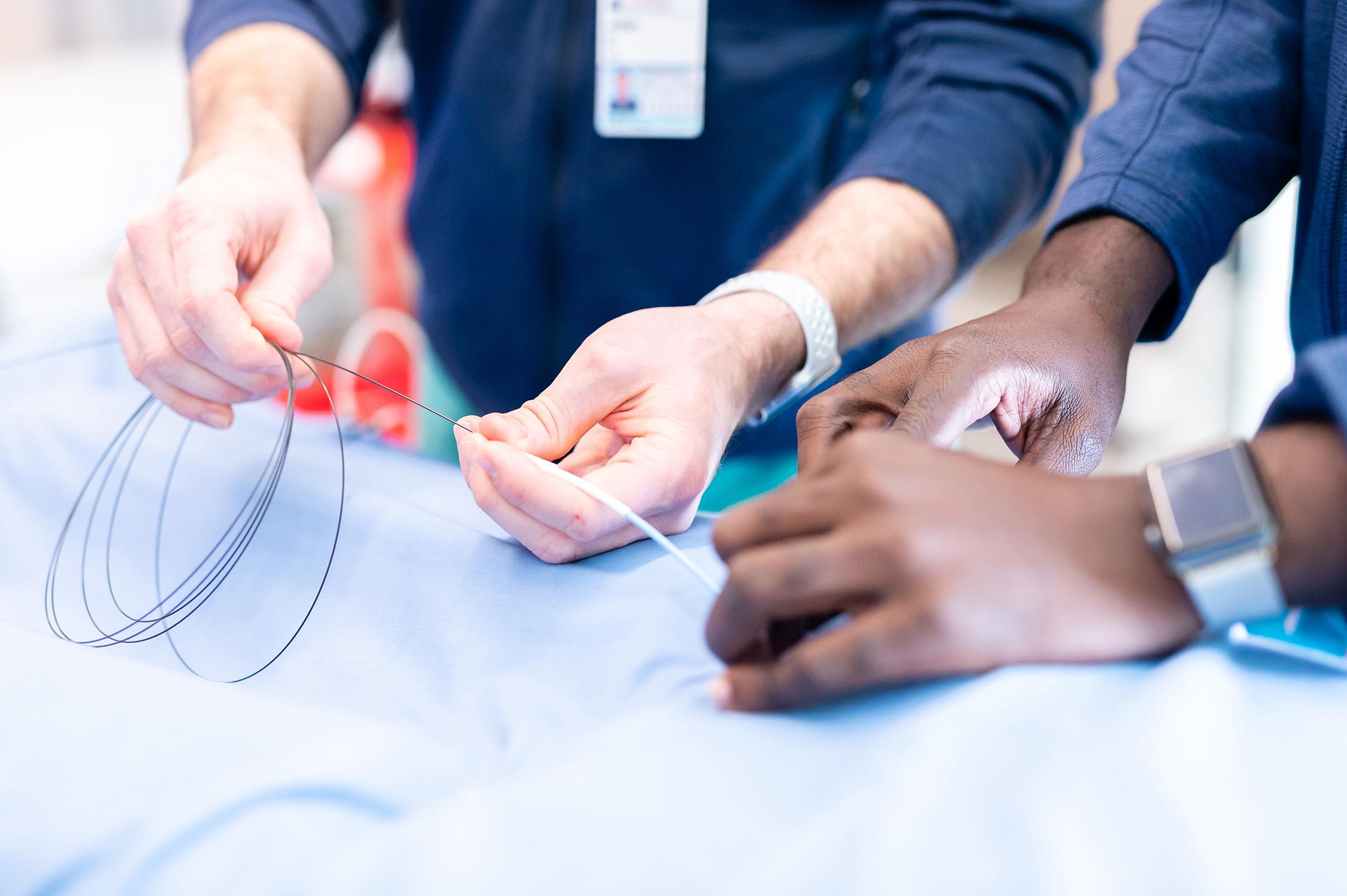Head & Neck Cancer

Make an Appointment
Cancer can grow in your nose, mouth, throat, voice box, thyroid gland, salivary glands, and skin. Here, head and neck cancer threatens your most important senses. It can damage your physical appearance. These tumors grow in hard-to-reach places. Sometimes they extend into your eyes and brain.
Treating head and neck cancers like these takes experience, expertise, compassion, and collaboration. At UVA Health, you'll find we do everything we can to help you heal and thrive.
Our specialty surgeons help you manage these difficult cancers. We offer advanced medicine through clinical trials. And you'll find options that don’t involve cutting into your neck or face.
Head & Neck Cancer Treatment at UVA Health
Our head and neck specialists include ENT experts who rank high on a national level. We’ve earned global recognition for expertise in:
- Treating a rare nasal cavity cancer (esthesioneuroblastoma)
- Pioneering surgeries that spare the eye during operations on sinus and nasal cancers
- Procedures that take out tumors that extend from the nose to the brain (skull-base tumors)
Head and neck cancers we treat include:
- Carotid body
- Lower throat (hypopharyngeal)
- Mouth
- Parathyroid
- Salivary gland
- Sinus and nasal cavities
- Skin
- Skull base
- Throat
- Thyroid
Reaching Hard-to-Get Cancers
Cancers of the head and neck tend to grow in hard-to-reach places. This has made them hard to kill without hurting the brain.
That’s why we partner with our radiation oncology team to offer intensity-modulated radiation therapy (IMRT). This system allows for precise targeting of radiation. The radiation kills the tumor without hurting healthy tissue.
Robotic Surgery
Cancers at the back of the tongue and throat used to need open surgeries. Surgeons had to make big, painful cuts to access tricky tumors.
Today, we use robotics. This helps us reach these areas without major surgery. We guide tiny robotic arms to take out buried tumors. This results in less pain, faster recovery, and better outcomes.
Navigating a cancer diagnosis?
Whether you’re seeking a second opinion, exploring treatment options, or just beginning your cancer journey, we’re here to guide you with compassion and expertise.
What Causes Head & Neck Cancer?
Tobacco use is the #1 cause of head and neck cancers, with 85% of new cases directly linked to tobacco. Drinking alcohol and using tobacco at the same time more than doubles the risk of developing head and neck cancer.
We can detect most of these cancers with a simple physical exam, so see your doctor if you are a heavy tobacco user or have symptoms.
Head & Neck Cancer Symptoms
- Ulcers that won’t heal
- Throat pain that's not better in 2-4 weeks
- Difficulty swallowing, especially with weight loss
- Persistent ear pain
- Change in your voice or persistent hoarseness
- Change in the way your dentures fit
- Unexplained facial pain
- Lumps or masses in the neck
- Faster AnswersStart With An ENT Specialist
Having a growth can cause anxiety. We shorten your wait for a diagnosis. We have office-based ultrasound to perform imaging without delay.
- Facial ReconstructionSee How Our Surgeons Can Help
Our surgeons are skilled in restoring your facial features to both form and function. And they can do it during the same cancer treatment surgery.
- Care For Your CraniumMeet Our Skull-Base Experts
Your team includes head & neck surgeons, ENT specialists, skull base specialists, radiation experts, & cancer experts.


